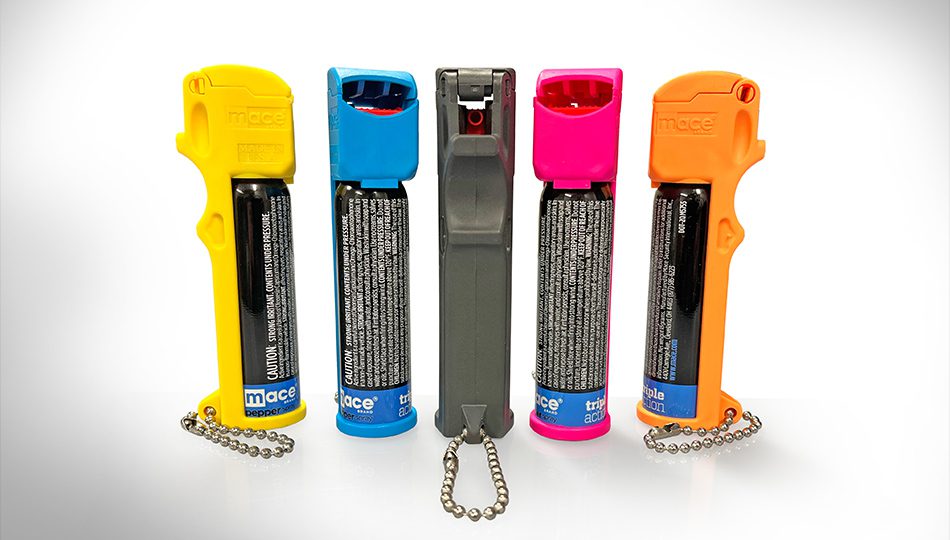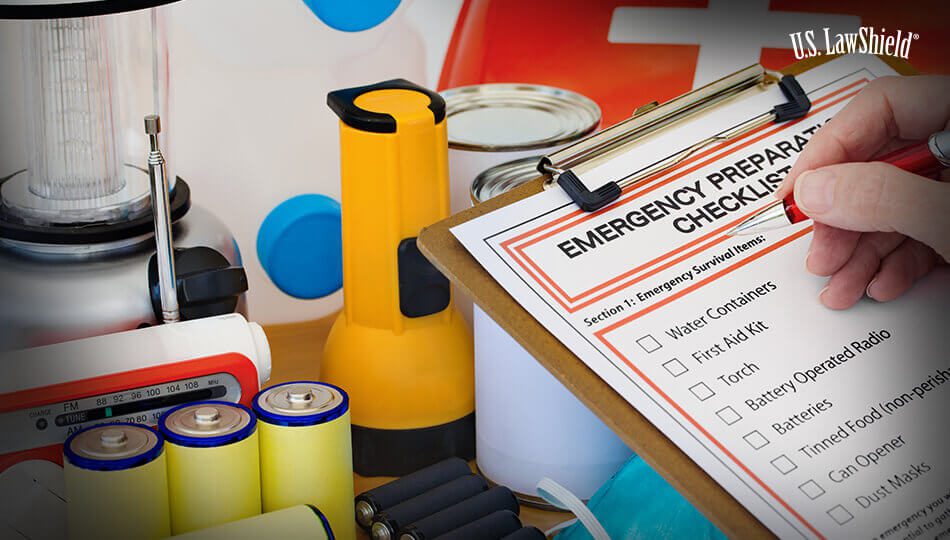
Can I Travel With My Firearm on a Road Trip?
A common question among gun owners when it comes to travel is if you can take a firearm on a road trip. The answer is that it depends. Before you decide to pack your firearm and leave your home state, it’s a good idea to take the time to understand the laws about traveling with firearms.
It’s difficult to imagine nationwide reciprocity regarding firearms passing into law anytime soon. This means that all law-abiding gun owners should be aware of the gun-related laws in every state they intend on traveling through—even if it means choosing a different vacation destination or going on a trip without any firearms. And of course, gun owners must be familiar with the gun laws in their destination state as well. This applies to both traveling with a firearm stored in a locked or unlocked case and concealed, or open carry, of a gun or guns while traveling.
It’s also worth noting it applies to all firearms, not only handguns; your rifle or shotgun is subject to the gun laws of the states you travel through or to as well. It takes research and planning when you think you may travel with guns or any legal weapon, including knives.
What Do I Need to Know About Gun Laws and Road Trips?
Here are four common misconceptions or mistakes to avoid when traveling with a firearm:
Mistake #1: Assuming Your License or Permit is Recognized in the Other 49 States
The first mistake made by gun owners who travel with firearms is assuming one state’s license or permit to carry a weapon will be recognized and honored in the other 49 states. This simply isn’t true and can land you in trouble if you’re stopped by law enforcement in the wrong place with the wrong weapon, whether it’s your firearm or something else entirely. Not all concealed carry permits are recognized or granted reciprocity in every state. State gun laws vary and so do concealed carry laws. Don’t assume you can carry just because you have a license or permit from your state of residence.
Mistake #2: Assuming Your Handgun is Legal Throughout the United States
The second misconception people have is that because their handgun is legal in their state, the gun must be legal throughout the entire United States. Again, every state has different laws regarding firearms, ammunition types, and even magazine sizes. If your handgun isn’t legal in the state you’re visiting and you’re stopped by law enforcement, you may be arrested. You shouldn’t travel with guns without first familiarizing yourself with the gun laws in every location you intend to travel through, as well as those in your destination state. U.S. LawShield® members can always call the non-emergency helpline to ask questions concerning other states’ firearm laws.
Mistake #3: Assuming State Laws Don’t Vary
Sometimes people think, “I live in the great, gun-friendly State of X, and if I keep following their gun-related laws, I will be in good shape when I travel to or visit State Y.” People might also believe they can carry guns while on a trip regardless of the fact they intend to cross a state line. This is false. If you’re visiting another state, you’re subject to their laws and their prison sentences. That means if you want to take your firearm with you to another state, you must know and adhere to their laws regarding firearms. Again, the gun laws in your state of residence don’t supersede or otherwise influence the gun-related laws of an entirely different state.
Mistake #4: Thinking the Safe Passage Provision Will Prevent an Arrest
The final misconception is that the Safe Passage provision of the Firearm Owners’ Protection Act will prevent an arrest if you’re caught in a state with a firearm you’re not legally allowed to have in that location. Maybe you think, “This is my car and my guns, which are locked in a gun case. I’m not leaving it while in non-permissive states, so my trip plans and firearms will be protected under Safe Passage.” The idea that the Safe Passage provision will grant you immunity from getting a fine or being arrested is untrue.
Let’s take a look at 18 U.S.C. § 926A, where this important law is located. The statute reads:
Notwithstanding any other provision of any law or any rule or regulation of a State or any political subdivision thereof, any person who is not otherwise prohibited by this chapter from transporting, shipping, or receiving a firearm shall be entitled to transport a firearm for any lawful purpose, from any place where he may lawfully possess and carry such firearm to any other place where he may lawfully possess and carry such firearm if, during such transportation the firearm is unloaded, and neither the firearm nor any ammunition being transported is readily accessible or is directly accessible from the passenger compartment of such transporting vehicle: Provided, that in the case of a vehicle without a compartment separate from the driver’s compartment the firearm or ammunition shall be contained in a locked container other than the glove compartment or console.
Put simply, if you’re traveling through a state without stopping, and you’re legally allowed to possess your firearm in your home state and in your destination state, and you pack your unloaded firearm and ammunition in a locked hard-sided gun container in your trunk, you’ll have the Safe Passage provision as a defense available to you.
It’s important to note that this is a defense raised in court after your arrest. A police officer in a state may simply not allow you to carry on to your destination if you’re stopped with an illegal weapon, including a firearm, in their territory.
What is the Firearm Owners Protection Act?
You’ll be happy to know that the Federal Firearm Owners’ Protection Act, or FOPA, allows you to legally transport your firearms in your vehicle while you drive, so long as you comply with a short list of requirements found in what’s known as the “Safe Passage” provision, or 18 U.S.C. § 926A.
There Are Three Conditions You Must Meet to Take Your Firearms With You
- The first condition is that any firearms you’re transporting must be unloaded and locked in the trunk of the vehicle or in another container that’s out of reach or not immediately accessible. Any ammunition must also be locked in the trunk or another container. This doesn’t include the glove box or center console.
- Second, your journey must begin and end in states where your possession of the firearms is legal. So, for example, if you begin your travel in your home state of Texas and are looking to drive with your concealed carry gun to Grandma’s house in Kansas, where permitless concealed carry is legal, you’ll be protected as long as you meet the other two conditions. However, if you begin your journey in Texas and are driving to New Jersey for vacation, where a state-issued license is required to even own a firearm, you and your gun will not be protected under the Safe Passage provision.
- Lastly, you must be “traveling.” Unfortunately, the term “traveling” isn’t defined in federal law. Courts have interpreted it narrowly to indicate that a person mustn’t stop in one place for “too long.” How long is “too long” when you have a firearm in your car isn’t entirely clear. In an actual case decided in 2013, a man was convicted for illegal possession of his shotguns and rifles secured in zippered gun cases after he stopped for a brief nap in New Jersey while moving from Maine to Texas. The best course of action is to travel through states that are not firearm-friendly as quickly as possible.
With Firearms in the Car, Safe Passage Protection May Not Always Prevent an Arrest
A word of warning: Even if, as a gun owner, your travel qualifies you for Safe Passage protection, some states—such as New York and New Jersey—treat Safe Passage protection as a mere affirmative defense instead of a protection from arrest and prosecution. This means police in these states may still arrest you if you’re pulled over with firearms in your vehicle, despite meeting all of the conditions of the federal statute. To contest charges of illegal possession of firearms and/or assault weapons, you’d need to assert your Safe Passage protection as a defense in court. This could involve substantial court costs and inconvenience, not to mention putting a halt to your vacation plans.
Aside from knowing and following the laws in states you travel through with firearms, it might be worth considering taking the time to drive around these locations. If you insist on taking a gun on your road trip, you might consider taking a longer route to avoid places where your gun isn’t legally allowed. And remember, claiming ignorance of the law isn’t a valid legal defense, and that includes travel with guns.
Research the State Gun Laws of Every Place You Intend to Visit
The best practice when traveling to other states is to do your homework. Research the firearm laws of each state you plan on visiting before you leave home. Even if your travels will only carry you across a small corner of a state that is not gun-friendly, it can go badly if you carry guns or are transporting guns in ways that state doesn’t allow. Never assume a brief stop or short visit will keep you legally safe. Not only could that ruin your vacation, but it could also have far-reaching implications for you as a gun owner.
For any reciprocity or state law-carrying questions, call U.S. LawShield® and ask to speak to an attorney.
Your Protection Starts Here!
The information provided in this presentation is intended to provide general information to individuals and is not legal advice. The information included in this publication may not be quoted or referred to in any other publication without the prior written consent of U.S. LawShield, to be given or withheld at our discretion. The information is not a substitute for, and does not replace the advice or representation of a licensed attorney. We strive to ensure the information included in this publication is accurate and current, however, no claim is made to the accuracy of the information and we are not responsible for any consequences that may result from the use of information in this publication. The use of this publication does not create an attorney-client relationship between U.S. LawShield, any independent program attorney, and any individual.





Thanks For Related My Information
The information provided in this presentation your knowledge my very helpful ☺️
Thank you for giving such good information.
Thank you for giving such great information.
This is ridiculous you would need to take a week or more to research all the laws of the states you’re driving through. A federal statute should have universal jurisdiction over any BS local laws. If I keep it unloaded I’m a lock compartment I should be exempt from any prosecution of any kind in any state period. Stay safe folks
I’m traveling from N.J to F.L with guns and ammunition that were legally bought,ammunition and magazines will be separated from the guns.We moving into our new home in Florida.Will I be ok with my travel plans???